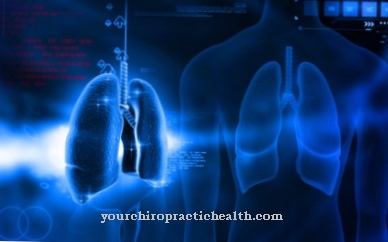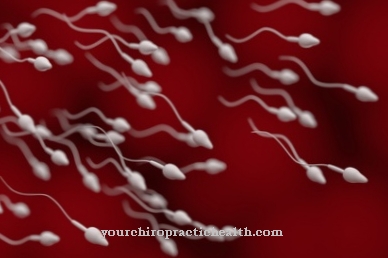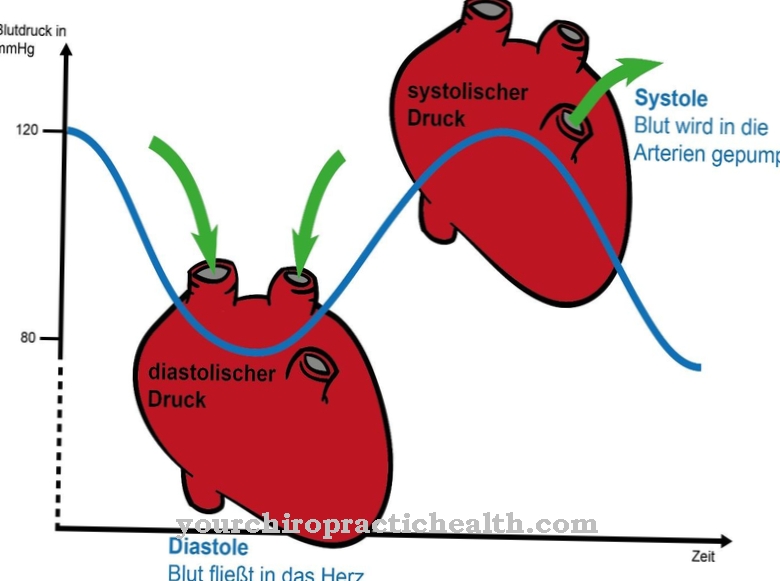It's cold outside in winter with a frost of minus 10 degrees. But in a few days there can be a thaw. Then it is damp and hazy - a suitable weather to catch a cold. You should be hardened, but who is this really? The subject of hardening is quickly suppressed. After all, it is enough if we have once again established that we have no time to harden because of the sheer sense of responsibility for our work and our company.
What does hardening mean?

What nonsense, because in this way the so-called hardening is mentally separated from working life and relocated exclusively to leisure time, but thus human life is divided into two or even three parts: work, relaxation and perhaps even sleep.
This attitude also leads to the belief that only the absolute tripartite division of the day, 8 hours of work, 8 hours of "life" (what one works for) and 8 hours of sleep, allows us to live properly (regardless of what we do in the 8th Hours of leisure time). The questions that we would like to answer below are concealed in this justification. Together with the nature, methods and limits of "hardening", we also want to explain the ability of humans to increase their willingness with the changing conditions of their environment to lead a culturally full life while at the same time largely assured health.
Simplified as it may be, the fact is that our organism is made up of a multitude of chemical compounds. From a biological point of view, life is metabolism, the supply and breakdown of chemical substances, so that apart from the laws of the substances themselves and their compounds, no special life force is required (unless one believes in a soul). In purely scientific terms, however, not only all organic, also all mental and spiritual processes are metabolic services - the latter especially the metabolic processes in the central nervous system. These in turn control all other body functions - for example breathing, circulation, digestion and excretion - in such a way that people behave according to the environmental conditions.
In order to answer the question of how we can "train" these metabolic processes, the origin of our organism must first be briefly touched upon. Biology has proven that life on earth - the interaction of chemical compounds in the metabolism of an organism - arose from so-called inorganic-chemical compounds that are not associated with life. She further demonstrated that one stage of development of the plant or animal species emerged from the other. But what were the reasons for maintaining life in the various stages of development?
The existence (or creation) of conditions that allow receptive chemical compounds to be processed as food or respiration. If we finally ask ourselves about the causes for the development of the animal species up to humans, then the answer is: The changed conditions in a certain area of the earth have made the continued existence of the same metabolic conditions - that is, of the animal species in question - impossible. A part of it died out, in the other part of the animal species in question the metabolism and thus the chemical composition were transformed. In this way the functioning of a new type of life, adapted to the changed conditions of the environment, which increased through reproduction, arose.
In this millennia-long process, the functional cell shape developed in living matter, its division as a principle of multiplication and growth, then the division of labor of the individual cells of the organism and finally their multiplication into organs and organ systems: One of these organ systems is the central nervous system, the brain and its nerve connections, which reach all areas of the body and - as already mentioned - control the functioning of all organs in such a way that they behave according to the environmental conditions.
It is this nervous system that "registers" the changes in the environment with the help of its sensory cells and, like a cybernetic, self-regulating system, increases or weakens the performance of the other organs by increasing its own metabolism. In very simple terms, one can say that we are healthy when the supply of chemical compounds through food and breathing corresponds in composition and quantity to the needs of our organism, when we constantly train our organism so that it can respond to changing and increased performance of the Metabolism in all organs and organ systems is prepared, which the environmental conditions demand.
How does hardening work?
We believe that we have now reached the point in our chain of thought where we can explain the nature of "toughening" in relatively simple words. The overall process of the metabolic performance of all organs is able to ensure the healthy existence of an entire organism under familiar conditions. However, the environmental conditions, for example the weather and other things, are changing. The organism must therefore be prepared for changing and increased metabolic capacities in all organs and organ systems. The change in the environmental conditions, so the biology established, was, where it took place in forms that allowed the conversion of the metabolism, the impulse for the constant new development from living beings to humans.
Transferred to our body, this means: In the change in the stimuli (or even the conditions) that we allow our organism to thrive, the causes for its preparation for increased metabolic performance lie in contrast to changing environmental stimuli - in short, the increase in those metabolic performances that cause this Prevent the emergence of diseases, so the "hardening".
The following example illustrates this: It is well known that our skin initially turns pale in the cold. This phenomenon is due to the fact that the cold stimulus causes the vascular nerves that constrict the hair vessels (capillaries) of the skin so that the body can retain the body heat. But when we come into the warm room, the skin turns red; The heat stimulus expands the capillary nerves, the skin is supplied with more blood and the accumulated heat is increasingly released to the outside. We can train this heat regulation if we give at least a cold shower to our face, arms and legs, as daily as possible, and then rub them off.
Since the nervous system, which can generate reactions to any stimulus, is involved in this process, the necessary heat regulation is already initiated when we prepare for going into the cold - our body appears hardened. The essence of so-called hardening is thus based on a complicated mechanism of nerve activity. We already know that seeing, hearing, feeling and all other sensations are based on metabolic processes in the brain. It is certainly understandable that the metabolic process triggered by a specific stimulus (e.g. hearing, visual or olfactory stimuli) in turn stimulates the metabolism in the associated functional center of the cerebral cortex.
Due to the connection between the brain centers, each specific stimulus also increases the general (unspecific) metabolism in the brain stem. Since breathing, the circulation, the digestive function and the release of hormones from the glands with internal secretion are controlled from here, i.e. those functions that make up the interaction of the individual organs for the maintenance of the unity in the overall metabolism of the organism, everyone from the Outside world in the nervous system stimulated metabolic process a specific sensation (hearing, sight, smell or cold sensation) and an abundance of unspecific metabolic activities result.
This means that the extent of the metabolism and thus the quality of the performance in the brain depends on the abundance of stimuli from the external and internal milieu of the organism and not on a "shutdown". It is well known that every metabolic activity is associated with the formation of new substances. Certain - substances always trigger a certain chemical process. In the figurative sense, however, this means nothing other than that the creation of a certain substance compound in the cell leads its further vital activity in a certain direction.
The occurrence of a substance in a cell means information for a specific functional sequence. The nerve cells not only have the ability - like all other cells - to process information, they can also store it. As a result, the cold stimulus and the associated metabolic impulse, for example during the daily cold shower, triggers the metabolic processes in the brain and the appropriate heat regulation that arise with every exposure to the cold. The conditioned reflex combination of numerous stimuli leads, among other things, to the fact that the morning weather forecast, in which it is spoken of minus 10 degrees, about the hearing stimulus and its connection with the brain centers, the metabolic processes in the cerebral cortex and the necessary for the adaptation to the coming cold stimulus all other organs prepared.
You can find your medication here
➔ Medicines to strengthen the defense and immune systemPractical implementation
This also includes our precautions, which we take against the cold by dressing up warmer. Not only cold and warmth - numerous bacteria and viruses also require a high level of adaptation in our metabolism every day. However, we can prepare ourselves appropriately for all of them. Apart from the vaccination against certain infectious diseases, the daily contact with numerous specifically acting stimuli means at the same time - as we now know - an increase in unspecific metabolic and thus also adaptive capacities.
If we have always put the word "toughening" in quotation marks, it is because many people associate this term with the thought: "The more, the better." But that's wrong, because the increased adaptation to environmental stimuli results less from massive training (for example, lying in cold water for hours or walking for hours), but from the regular exposure of our organism to many stimuli. Therefore the correct hardening, the sensible preparation of the unspecific adaptive functions against all possible causes of illness is not a time problem, it is rather a question of sensible activity during the whole day.
It already begins with the right attitude towards one's own work, which helps us get out of bed better in the morning and makes the short morning cardiovascular training, such as movement exercises and showering, easier. It also helps us during work - no matter how one-sided it may be - to find a change in stimulus that makes overtiredness impossible. Even reading a good book in the evening, going to the theater and many other things can become an element of increased adaptability, because all of this, as mental and emotional sensations, leads in various ways to specific and unspecific metabolic activities in all regions of the brain.
The resigned sigh, one should be hardened, does not help us a bit further. Since life is not an unchangeable state, but a process that we evoke daily and prepare for the next few days, we have to learn to live. But we don't learn that if we crawl into our apartment right away, go to bed early and put off ourselves on Sunday. Only if we fully exploit the possibilities of our being and in doing so correctly define the limits, will we ensure a willingness to adapt under the conditions of our life - including against becoming ill.



























